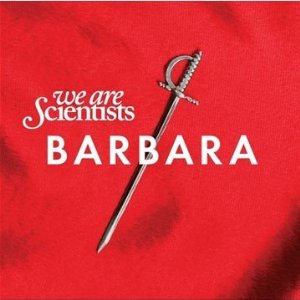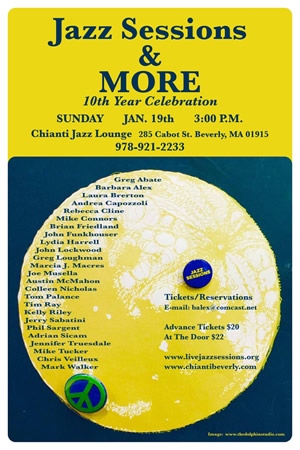 We Are Scientists have forged their trio sound into a polished, well-crafted song structures on this impressive third studio effort, Barbara. Barbara was recorded in studios in California, London, and New York. The album has a sweet politeness that marks every tune on this power-pop album.
We Are Scientists have forged their trio sound into a polished, well-crafted song structures on this impressive third studio effort, Barbara. Barbara was recorded in studios in California, London, and New York. The album has a sweet politeness that marks every tune on this power-pop album.
The trio is guitarist-vocalist Keith Murray, bassist-backing vocalist Chris Cain, and present drummer Andy Burrows. The song structures are simple, but the sound that We Are Scientists get out of their instruments when they’re playing with their special chemistry makes it all work out well. They inject much inventive inside of their simple frameworks.
Despite the brash song title “Rules Don’t Stop,” the tune actually has a high, smooth vocal pitch, and its polished guitars and drums come across like something that mom and dad might have been listening to in the 1980s. We Are Scientists have influences that can easily be traced back to the decade of Ronald Reagon. “I Don’t Bite” has an engaging rhythm that smacks of 80s fun. The chorus reminds of The Thompson Twins: “I don’t bite/but you can’t believe it.” Quirky lyrics like this abound throughout. There is such a fine, precise vocal harmony sweetened by the upbeat feel of these songs that can draw the attention of people who like Franz Ferdinand as well as the folks who play their 80s compilations over and over again.
The rollicking bass line on “Nice Guys” hits with plenty of smack. It makes itself felt while filling in nicely into the mood of the song. There is also nifty bouncy guitar riff that drives this piece forward with a steady verve. No swagger here. Just fun tunes delivered with polite confidence. We Are Scientists will long be noted for their smooth delivery in the vocal and guitar departments. “Jack & Ginger” has a breezy sing-song melody that carries you away and into this young adult world of personal issues. You can appreciate the ringing guitar melodies underneath the lyrics. Their persistent peppiness becomes an important part of the sound, even though the guitarist is only utilizing a few notes in numerous intervals.
The catchiest song the album,” Pittsburgh” gets some unique sound textures from keyboard tweaks in this dissonance filled nugget. The eerie backdrop contrasts well with the pure, sweet singing voices. A repetition of the lyric “We’re only after one thing” takes on new meanings when its repeated enough. Two voices combined well in the chorus to give it that added brightness without slipping into syrupy maudlin sentiment. By this point the listener has been bombarded with enough bright guitar sounds to know this is one inventive band.
“Ambition” has a bouncy drum beat that bumps this along at a suitable pace for the mildly grinding of guitar notes, and what could be called the guitar’s after taste notes. It’s as if the guitarist is playing each note in unison while playing chords under it. That thickened guitar rides that bouncy beat and splashes more sound. “Break It Up” also shines with more sweet sounds but the rhythm here is quicker and bumpier. The tune gallops along at an involving pace. Guitar and keyboards in a counter point melody weave a tapestry of modern rock buoyancy. It also drives forward with a very 80s guitar phrase. It’s a precise phrase that while simple is also tight with the bass and drums. WAS are steeped in cliché’s from the decade of synth-pop. To their credit, they never let themselves get overwhelmed by those old power pop idioms. Instead, they use them well.
“Foreign Kicks” gets its strength from an 80s style bass line, large, hollow, wide low end that doesn’t need to play a lot of notes to create something with oomph. The guitar on this one plays with bright sounds and a slight bit of ingenuity to make it ring like a bell with catchy melody during its changes. Almost hypnotic, the six string pulls the listener into a special time and space.
Their song title “You Should Learn” has a more modern influence, a declarative that gets support, in a fun way, from a hooky chorus and a mildly understated lead vocal. We Are Scientists close out with their lyrically quaint number “Central AC,” another tune that perfectly embodies the qualities of the preceding songs. Only this time the guitar has an edgy break inside the eccentric, speedy paced song.
Every bit of this new CD smacks of an 8o’s influence. Yet, the boys of We Are Scientists take their influences to new places in modern rock. Their 80s feel is just stuffing inside the main sound, making them one of those rare bands who can rise above their influences by stretching them into new musical territory. They just might pull in some fans from the previous generation.
www.wearescientists.com

